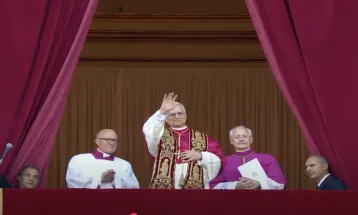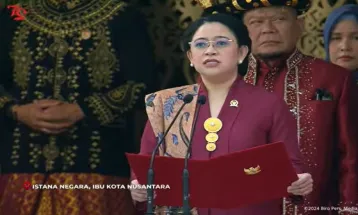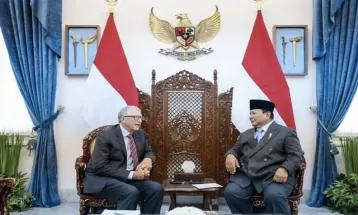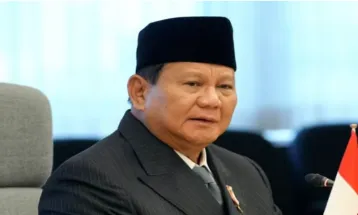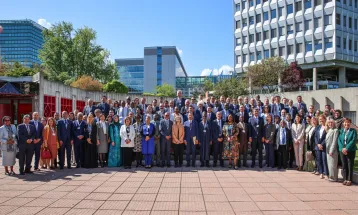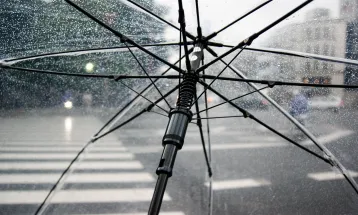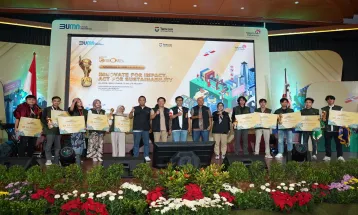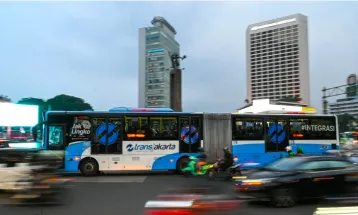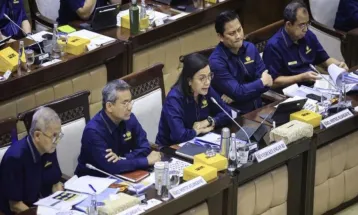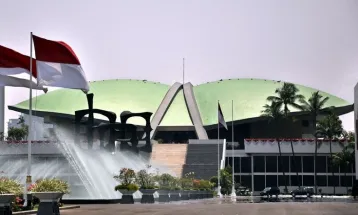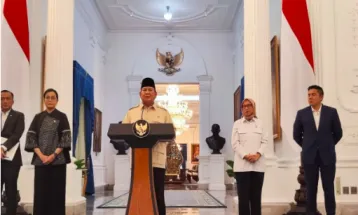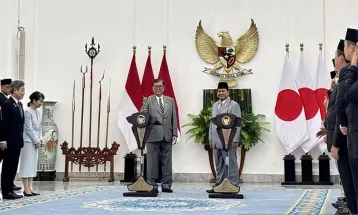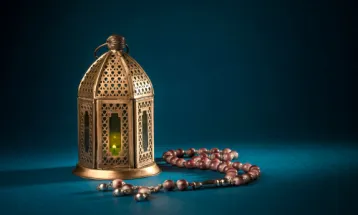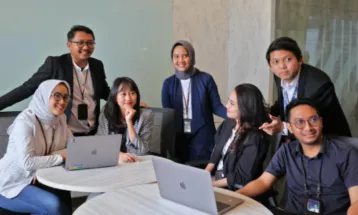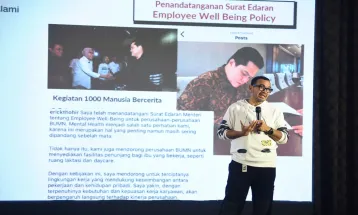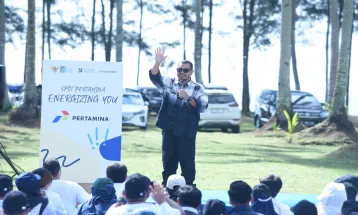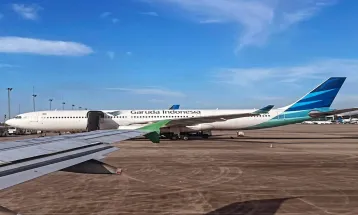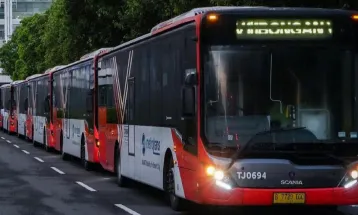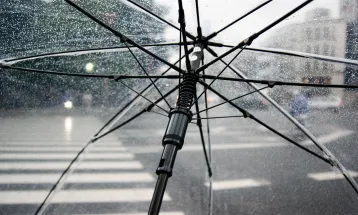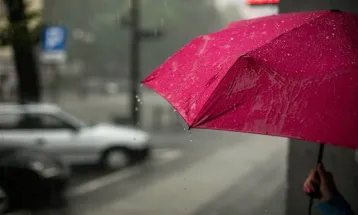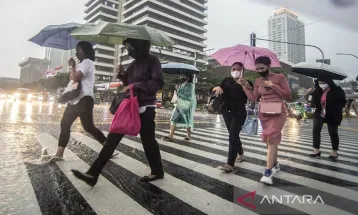Elections and Dangdut: The Sweet Sound of Political Strategy
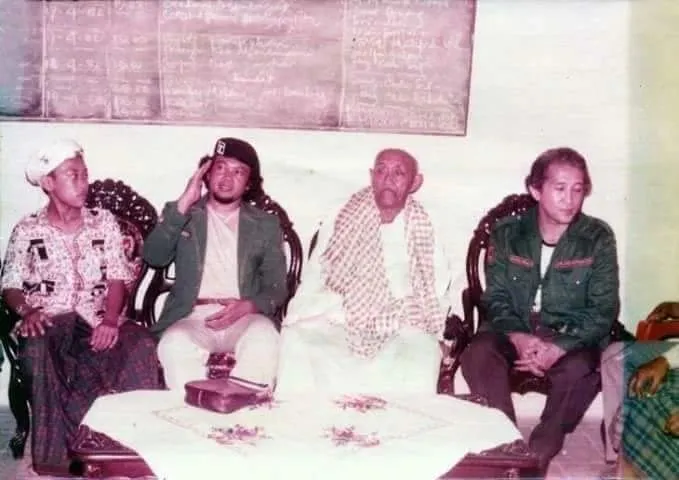
Indonesia’s electoral contests have long been infused with entertainment as a strategy to win voters' hearts. Among these, the most popular in recent decades is dangdut, a music genre deeply rooted in Malay orchestral traditions and beloved across social classes, particularly among the working class. But why has dangdut become synonymous with elections?
Entertainment-driven political campaigns are not a novel concept in Indonesia. The use of cultural and entertainment elements to attract voters dates back to the nation’s first general election in 1955. At the time, entertainment options were scarce, especially in rural areas, prompting political parties to incorporate local performances to draw crowds.
Early Campaigns: A Blend of Culture and Politics
Political parties such as the Indonesian National Party (PNI), Masyumi, Nahdlatul Ulama (NU), and even the Indonesian Communist Party (PKI) leveraged traditional arts to engage with communities. The PKI, for instance, established the People’s Cultural Institute (Lembaga Kebudayaan Rakyat or Lekra) to cultivate traditional arts and expand its influence. As historians Marwati Djoened Poesponegoro and colleagues noted in Sejarah Nasional Indonesia Volume 6 (1984), “Through various attractions like ketoprak, wayang kulit, ludruk, and reog Ponorogo, PKI used culture as a political tool, penetrating rural areas effectively.”
Modern Music as a Campaign Medium
The transition from traditional to modern entertainment in political campaigns gained momentum during the New Order era. By the 1971 elections, parties like Golkar began incorporating popular music genres such as pop, twist, and rock and roll into their strategies. Golkar even assembled a group of renowned Indonesian artists, forming the Artis Safari Golkar ensemble.
Sri Pudyastuti R. and Dwi S. Irawanto, writing in Tempo’s January 2, 1993, article “Dangdut, Bisnis, dan Politik,” explained the group’s significance: “The goal was to gather artists willing to tour and campaign in the regions. This group played a pivotal role in Golkar’s victories and became a staple in every campaign.” In return, artists received exposure on state television’s Aneka Ria Safari.
The integration of celebrities with the ruling regime created a powerful campaign tool that Golkar used to secure repeated electoral triumphs. The presence of household names in entertainment became an irreplaceable asset in rallying voter support.
Dangdut: The Game-Changer
The emergence of dangdut in the 1970s revolutionized Indonesia’s political campaign landscape. Spearheaded by Rhoma Irama, who blended Malay orchestral sounds with rock influences, dangdut quickly gained nationwide popularity, becoming a symbol of the people.
Rhoma’s songs often carried Islamic values and moral lessons, making him a natural fit for the United Development Party (PPP), an Islamic-oriented political party. In the 1978 elections, he served as a campaign ambassador, marking the first time dangdut was central to a political campaign.
By the 1982 elections, dangdut had cemented its role as a powerful voter mobilization tool. As Moh. Shofan observed in Rhoma Irama: Politik Dakwah dalam Nada (2014), “The 1982 elections placed PPP in second with 10.8 million votes, thanks largely to Rhoma’s performances. His ability to draw crowds made him the most effective mass mobilizer in Indonesian political history.”
Dangdut’s Lasting Legacy
The success of dangdut in political campaigns has endured, solidifying its status as a mainstay in electoral strategies. Political parties continue to recruit famous dangdut singers to perform at rallies, ensuring high attendance and enthusiasm. The genre’s ability to connect with grassroots audiences has made it indispensable in Indonesian politics, a legacy that persists to this day.
Without dangdut, political campaigns might feel lackluster. Its enduring appeal as a voter magnet reflects a unique synergy between music and politics in Indonesia.
Writer: Fariz Ahmad Luthfi
Recommended Article
Insight Indonesia
TNI Law Amendments Officially Passed by Parliament
The Bill on Amendments to Law Number 34 of 2004 on the Indonesian National Armed Forces (TNI) has been approved
President Prabowo Leads Meeting on Downstream Industry Accelerati...
President Prabowo Subianto held a limited meeting with several cabinet ministers at his residence in Hambalang, Bogor
Japan's Prime Minister Supports Indonesia to Become a Member of O...
Japan's Prime Minister, Shigeru Ishiba, expressed his support for Indonesia's efforts to become a full member of the Organization for Economic Cooperation and Development (OECD), which currently consists of 38 countries...
Muhammadiyah: Ramadan 2025 Begins March 1, Eid Falls on March 30
Muhammadiyah Central Leadership (PP), Tuesday (7/1), officially set the beginning of Ramadan 1446 Hijri on March 1, 2025. Meanwhile, Eid al-Fitr or Lebaran will fall on March 30, 2025.
Popular Post
SOEs Ministry Tries Out Four Days in Workweek System
The State-Owned Enterprises (SOEs) Ministry is testing the implementation of a four-day workweek. This was shared on Instagram @lifeatkbumn on Saturday (6/8).
TransJakarta Extends Operational Hours of Soekarno-Hatta Airport...
TransJakarta extended its service time until midnight for the corridor with destination to the Soekarno-Hatta International Airport, starting Wednesday (6/19).
Trending Topic
Weather Forecast
Weather Forecast Today: Some Cities Are Expecting Light Rain
Several major cities have the potential to experience light rain on Tuesday (8/4/2025) today. Check out the following explanation.
Potential Extreme Weather to Hit Western Indonesia
The Meteorology, Climatology, and Geophysics Agency (BMKG) has identified the potential for extreme weather in western Indonesia
The Meteorology, Climatology, and Geophysics Agency (BMKG) Predic...
The Meteorology, Climatology, and Geophysics Agency (BMKG) predicts that high-intensity rainfall will continue until March 11. Although a slight decrease in intensity is expected in the coming days due to weather modific...
Weather Forecast: Light Rain Across Jakarta on Thursday Afternoon
The Meteorology, Climatology, and Geophysics Agency (BMKG) forecasts that all areas of Jakarta will experience light rain on Thursday (2/13) afternoon.



